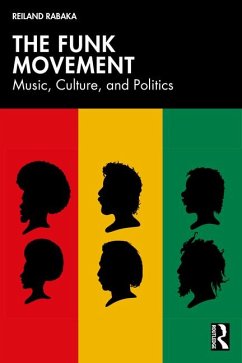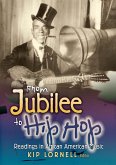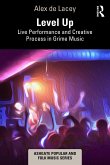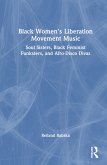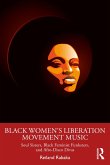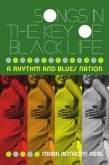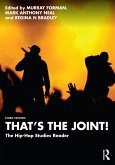Rabaka explores funk as a distinct multiform of music, aesthetics, politics, social vision, and cultural rebellion that has been remixed and continues to influence contemporary Black popular music and Black popular culture, especially rap music and the Hip Hop Movement.
The Funk Movement was a sub-movement within the larger Black Power Movement and its artistic arm, the Black Arts Movement. Moreover, the Funk Movement was also a sub-movement within the Black Women's Liberation Movement between the late 1960s and late 1970s, where women's funk, especially Chaka Khan and Betty Davis's funk, was understood to be a form of "Black musical feminism" that was as integral to the movement as the Black political feminism of Angela Davis or the Combahee River Collective and the Black literary feminism of Toni Morrison or Alice Walker. This book also demonstrates that more than any other post-war Black popular music genre, the funk music of the 1960s and 1970s laid the foundation for the mercurial rise of rap music and the Hip Hop Movement in the 1980s and 1990s.
This book is primarily aimed at scholars and students working in popular music studies, popular culture studies, American studies, African American studies, cultural studies, ethnic studies, critical race studies, women's studies, gender studies, and sexuality studies.
The Funk Movement was a sub-movement within the larger Black Power Movement and its artistic arm, the Black Arts Movement. Moreover, the Funk Movement was also a sub-movement within the Black Women's Liberation Movement between the late 1960s and late 1970s, where women's funk, especially Chaka Khan and Betty Davis's funk, was understood to be a form of "Black musical feminism" that was as integral to the movement as the Black political feminism of Angela Davis or the Combahee River Collective and the Black literary feminism of Toni Morrison or Alice Walker. This book also demonstrates that more than any other post-war Black popular music genre, the funk music of the 1960s and 1970s laid the foundation for the mercurial rise of rap music and the Hip Hop Movement in the 1980s and 1990s.
This book is primarily aimed at scholars and students working in popular music studies, popular culture studies, American studies, African American studies, cultural studies, ethnic studies, critical race studies, women's studies, gender studies, and sexuality studies.
'Embark on an exhilarating journey of Funk music, politics, and culture that places men and women alike at the heart of Funk history, revealing the roots, aesthetics, decolonization, and depoliticization of the revolutionary genre. Brace yourself for a captivating exploration where every page and chapter explores the dynamic connection between lived experiences, narratives, accounts, lyrics, and innuendos that characterize this nonconforming genre, Funk. The evolving ties to historical movements, previous genres, and Hip Hop vividly portray how Funk transcends sound to become a powerful force in shaping collective history. "Indeed, a fuller and funkier picture of Funk is brought into being" with compelling stories of music as a means of empowerment.'
Ruth Opara, Columbia University, New York
'Dr. Reiland Rabaka has made a phenomenal contribution to the study of Black music and, by extension, Black Power. Funk is more than a genre. This study explores funk as sonic aesthetic, and movement within a movement.'
Scot Brown, UCLA
Ruth Opara, Columbia University, New York
'Dr. Reiland Rabaka has made a phenomenal contribution to the study of Black music and, by extension, Black Power. Funk is more than a genre. This study explores funk as sonic aesthetic, and movement within a movement.'
Scot Brown, UCLA

